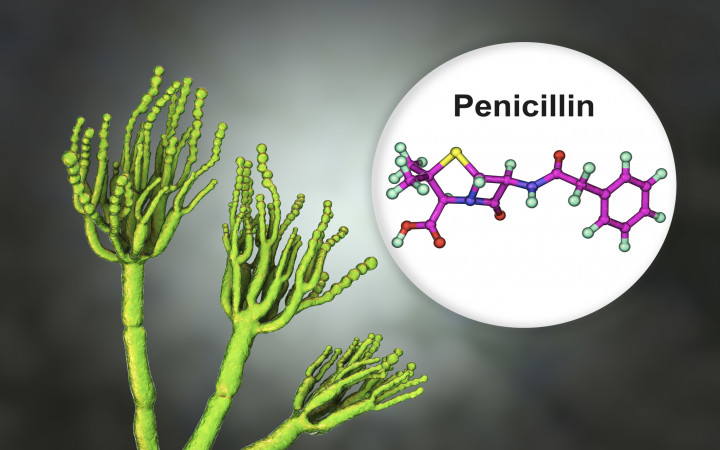Today’s Wonder of the Day was inspired by Margaret. Margaret Wonders, “Who was Alexander Fleming? ” Thanks for WONDERing with us, Margaret!
Have you ever had strep throat? How about a bad ear infection? Today, people bounce back from these illnesses. Often, they do so with the use of antibiotics.
Not that long ago, infections were not so easy to treat. Even the smallest cut could cause trouble. What changed? People found a new way to fight bacteria. What are we talking about? Penicillin, of course!
On September 3, 1928, Alexander Fleming was hard at work. His job was to study bacteria in a lab. While working, Fleming found mold on one of his Petri dishes. And, when he looked closely, he saw something curious.
The bacteria he studied were also growing all over the dish. But they weren’t growing on the spots that had mold. Was the mold driving bacteria away? After more tests, Fleming found that it was doing just that. And he learned that the mold was a type called Penicillium.
Fleming believed that he could turn the mold into medicine to fight infections. This medicine was the world's first antibiotic. Fleming first named it “mold juice.” Later, he changed the name to “penicillin.” Soon, a team at Oxford University stepped in to help. Scientists Howard Florey, Ernst Chain, and Norman Heatley worked with Fleming. Together, they further developed penicillin.
The first patient treated with the new drug had a bad infection. He was named Albert Alexander. After a few treatments with penicillin, he felt much better. However, they ran out of the medicine. The infection came back, and Alexander passed away.
Still, the doctors had learned that penicillin could fight bacteria. They just needed to make more of it. Later, Florey and Chain flew to the United States. There, they found ways to grow the mold faster. Starting in 1942, penicillin was used to treat World War II soldiers.
At that time, diseases were just as deadly for soldiers at war as enemy forces were. Bacterial pneumonia alone caused 18 percent of American casualties in the first world war. Thanks to penicillin, that dropped to less than one percent in World War II.
The four scientists saved lives and changed the world of medicine forever. Today, antibiotics are used to treat many illnesses. But doctors worry about bacteria becoming resistant to the drugs. That’s one reason why you should only take antibiotics when prescribed by a doctor.
Have you ever used an antibiotic? If so, you already know of their power. Medical discoveries like penicillin make people hopeful for more findings in the future. Will someone find a cure for cancer? A way to stop Alzheimer’s Disease? These discoveries could be closer than you think.
Standards: NGSS.LS4.C, CCRA.R.4, CCRA.L.3, CCRA.L.6, CCRA.R.1, CCRA.R.2, CCRA.W.2, CCRA.W.8, CCRA.W.9, CCRA.L.1, CCRA.L.2, CCRA.W.3, CCRA.R.10




